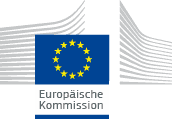Navigationsleiste
Additional tools
Nachrichten / Veranstaltungen
History Holds Lessons for the Future: The EHRI online portal
The European Holocaust Research Infrastructure (EHRI) is the largest ever EU-funded research initiative on the Holocaust. Funded with an EU contribution of almost €7 million by the EU Seventh Framework Programme for Research, EHRI began in October 2010.
EHRI's main objective is to support the Holocaust research community by opening up a portal that will give online access to dispersed sources relating to the Holocaust, and by encouraging collaborative research through the development of tools. The first four-year phase of EHRI is now over and its second phase starts this month (financed with EU funding of €8 million from Horizon 2020, the EU's current research and innovation programme).
On 26 March, the project unveiled one major result of its four years of hard work: an online portal that gives unprecedented access to dispersed Holocaust-related sources from Europe and beyond. To quote Carlos Moedas, European Commissioner for Research, Science and Innovation: "The portal will significantly contribute to shedding light on this bleak chapter of our common history and to ensuring the Holocaust is never forgotten". Descriptions of research sources, most of which have only been accessible at the institutions concerned, are now available online to users around the world. The EHRI portal provides an overview of the Holocaust history as well as of the state of the archives in the participating countries – Belgium, Czech Republic, Germany, Greece, France, Hungary, Netherlands, Austria, Poland, Finland, United Kingdom and Israel – and beyond. It allows scientists around the world to browse 57 country reports, 1,829 archival institutions in 51 countries, and 152,692 archival descriptions in 465 institutions (on 16 April 2015). The EHRI Portal is a growing resource that will continue to expand.
Coordinated by the NIOD Institute for War, Holocaust and Genocide Studies (KNAW - Netherlands Academy of Science), EHRI will continue in the second phase of the project to consolidate its existing position and expand to reach those regions and countries where much valuable Holocaust source material is located, but where access has hitherto been problematic, in South-Eastern and Eastern Europe. Some important new partners, the Polish Center for Holocaust Research, the German Federal Archives and the US Holocaust Memorial Museum, have joined the consortium. Like the EHRI partner Yad Vashem in Israel, the US Holocaust Memorial Museum in Washington DC is very active in collecting and preserving Holocaust collections, and in making them accessible to research. To quote Robert-Jan Smits, Director-General for Research and Innovation: "EHRI’s impressive work has given invaluable support to Holocaust researchers. I am delighted that under Horizon 2020 the project will even expand its scope during the second phase. It will continue to be a 'best practice' model for other humanities projects in its innovative approach not only as regards data integration, management and retrieval, but also as regards outreach to society."
Besides online access to reliable Holocaust sources, EHRI supports the Holocaust research community in many other ways. EHRI organises expert meetings, conferences, fellowships, summer schools and online courses. Undoubtedly the online availability and open access to reliable and properly contextualised Holocaust material is important and relevant beyond scholarly communities.
The products of EHRI will be useful for the Commission services, governments, organisations and citizens who are active in fields of excellent research, historical education, Holocaust education preparation of training materials for schools, human rights education, democracy education, citizenship programmes and tolerance and anti-discrimination programmes in national and transnational contexts.








